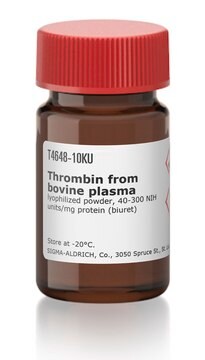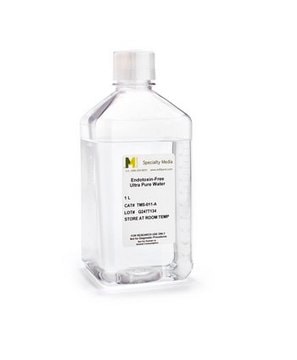W3513
Water
HPLC grade, suitable for HPLC
Synonym(s):
H2O
About This Item
Recommended Products
product name
Water, BioPerformance Certified
grade
BioPerformance Certified
vapor density
<1 (vs air)
vapor pressure
3 mmHg
sterility
sterile-filtered
form
liquid
technique(s)
cell culture | mammalian: suitable
refractive index
n20/D 1.34 (lit.)
pH
5-7
bp
100 °C (lit.)
mp
0 °C (lit.)
density
1.000 g/mL at 3.98 °C (lit.)
absorption
≤0.05 at 290
foreign activity
DNase, RNase, none detected
SMILES string
O
InChI
1S/H2O/h1H2
InChI key
XLYOFNOQVPJJNP-UHFFFAOYSA-N
Looking for similar products? Visit Product Comparison Guide
Application
- as a component of the reaction mixture for polymerase chain reaction (PCR)
- in the dilution of plasmids for real-time PCR
- as a component of 1X TE buffer and library elution buffer (LEB)
Preparation Note
Other Notes
Storage Class Code
12 - Non Combustible Liquids
WGK
nwg
Flash Point(F)
No data available
Flash Point(C)
No data available
Personal Protective Equipment
Regulatory Listings
Regulatory Listings are mainly provided for chemical products. Only limited information can be provided here for non-chemical products. No entry means none of the components are listed. It is the user’s obligation to ensure the safe and legal use of the product.
JAN Code
W3513-100ML:
W3513-VAR:
W3513-1L:
W3513-500ML:
W3513-BULK:
W3513-PROC:
Certificates of Analysis (COA)
Search for Certificates of Analysis (COA) by entering the products Lot/Batch Number. Lot and Batch Numbers can be found on a product’s label following the words ‘Lot’ or ‘Batch’.
Already Own This Product?
Find documentation for the products that you have recently purchased in the Document Library.
Customers Also Viewed
Protocols
3-D Culture Matrix™ Collagen I may be used as a gel on which to grow cells or a media additive alone or in concert with other basement membrane components to study cellular growth and differentiation in three dimensions in vitro.
Our team of scientists has experience in all areas of research including Life Science, Material Science, Chemical Synthesis, Chromatography, Analytical and many others.
Contact Technical Service


